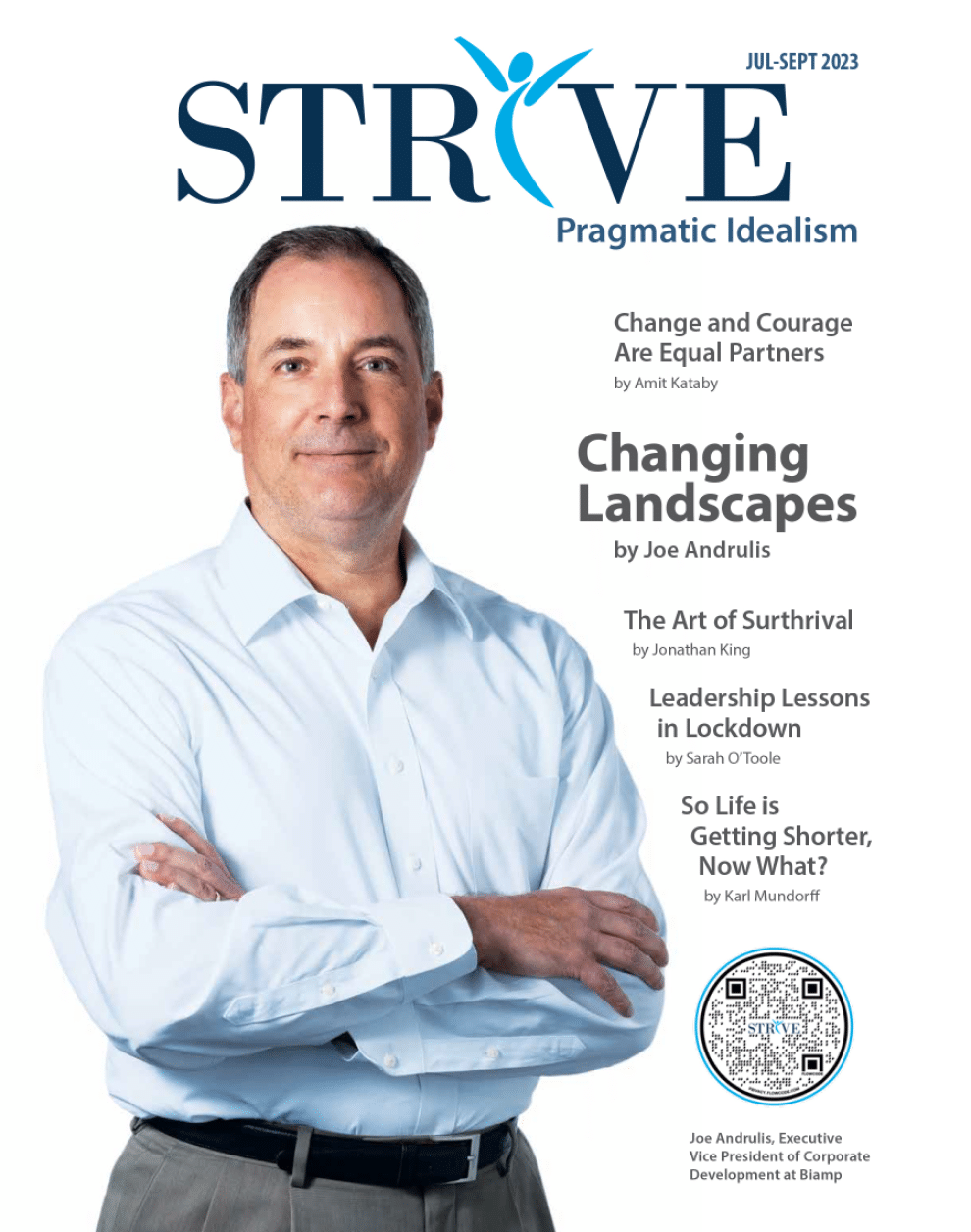Being an entrepreneur is all about passion and Kenny Burts is passionate about his company and his products!
Being an entrepreneur is also about being able to overcome adversity and Kenny has had plenty of that. Finally, being an entrepreneur is about being an optimist and Kenny has always been that.
Fascinating story
I first met Kenny Burts, the founder and CEO of Kenny’s Great Pies (originally Key Lime, Inc.), in 1992, three years after the company was founded. Kenny and his father, Ransom Burts, the CFO, were making a presentation to a group of potential advisors at the local chamber of commerce. I liked him and I liked his product. The assistance that I thought I could provide him was something that all small business owners could use, typically much earlier than they realize. I could help him deal with human resources issues. He thought so too, and 25 years later I still provide him guidance on how to best manage and retain his workforce.
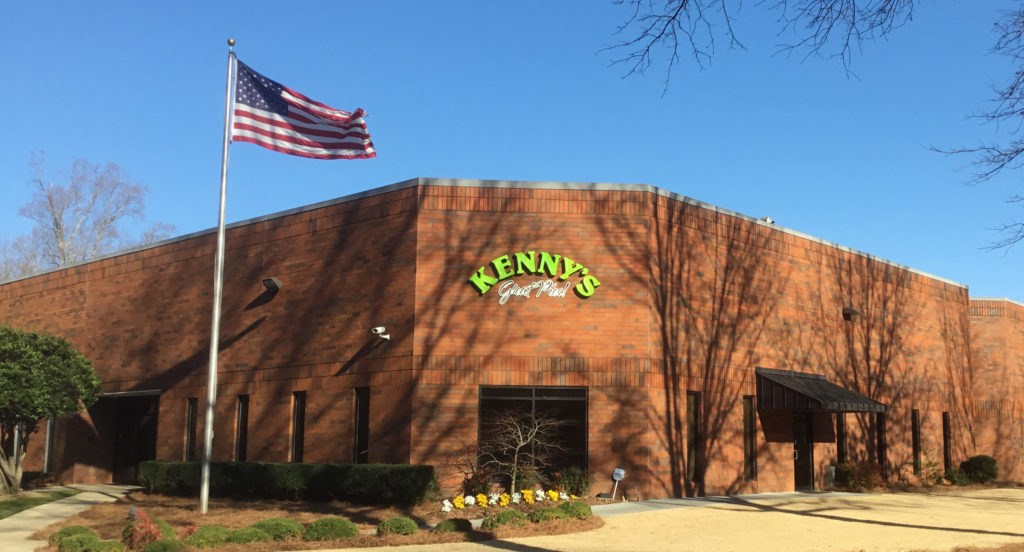
Kenny’s story
Kenny was the manager of a bar in suburban Atlanta, but he had bigger aspirations than that. He was making key lime pies in his apartment from his grandmother’s recipe. She had key lime trees on her property in south Florida and Kenny thought the taste was magical. He started taking the pies to the bar to let customers get a taste and one of the customers worked for growing restaurant chain. The customer told Kenny that the pie was so good the restaurant would buy what he made. Voilà, a business was born. Initially packing pies into his car to deliver to the chain, the word got out about how good they were and demand picked up.
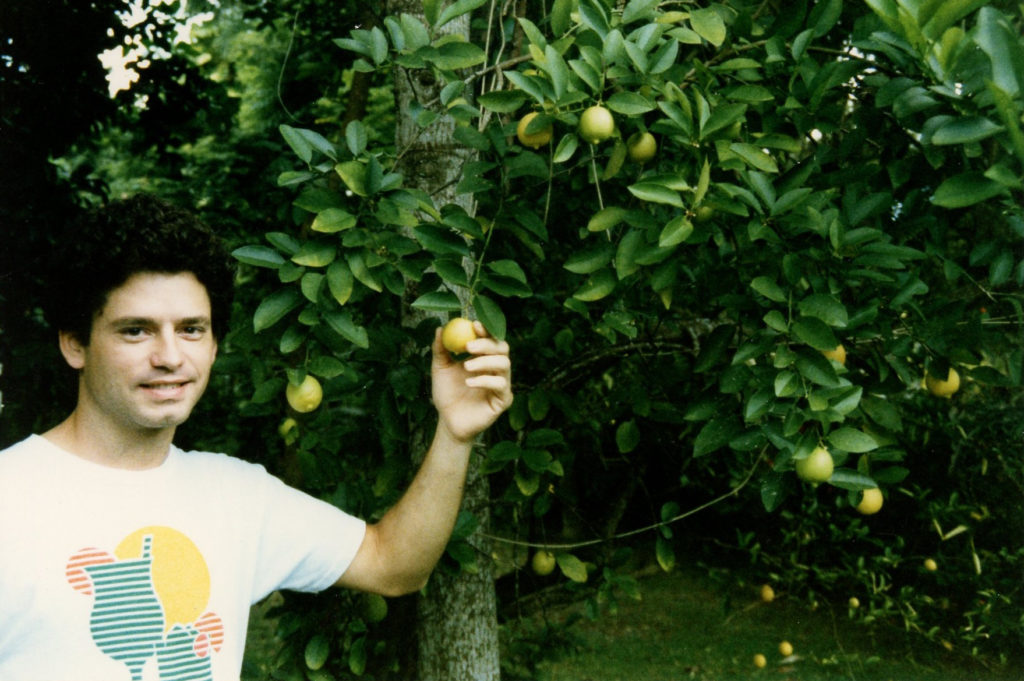
Kenny Burts and a key lime tree, 1989 , Miami-Coral Gables, FL.
The first big step was moving out of the apartment and into a 3000-square-foot commercial kitchen in a small industrial building in Smyrna, Georgia. Some of the challenges I worked on dealt with making sure they were compliant with all the necessary employment laws. Kenny was dedicated to providing his employees a good living and, in return, they were dedicated to him. Discovering that some of his employees did not have the proper documentation to be working in the US, Kenny went through the effort to sponsor these workers. His efforts paid off in spades and earned him a loyal workforce.
As Kenny’s Key Lime pies kept winning award after award for their quality and taste, the company kept growing. They needed more space, eventually taking over all 18,000 square feet of the building they were in. With the growth they were experiencing, 18,000 square feet was not enough, so they bought and renovated a 33,000-square-foot building, making it a state of the art food production facility. Kenny is very detail-oriented and he took painstaking steps to ensure that the building was going to meet his needs, all the while making sure the company ran efficiently.
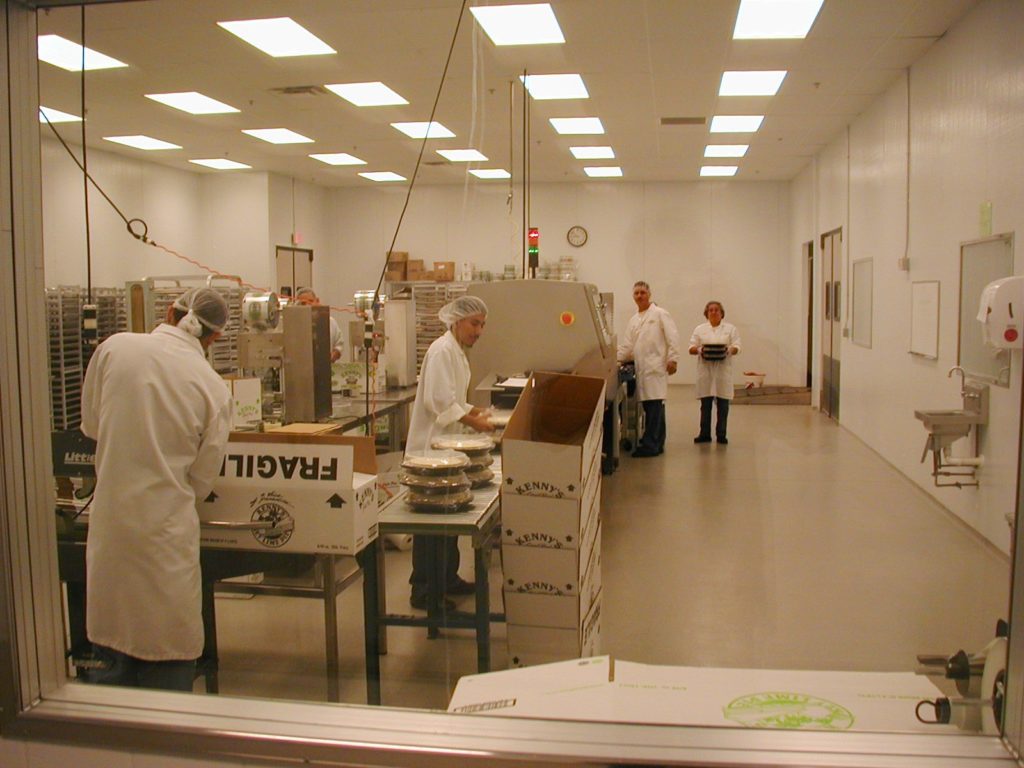
Challenges presented themselves along the way, as happens with all companies. Trying to hire a management team that had the same vision and same passion was, at times, difficult. Not every employee got excited about pies. To some it was just a job, but eventually a team was put together. Then, the economy took a tumble.
Challenges presented themselves along the way, as happens with all companies. Trying to hire a management team that had the same vision and same passion was, at times, difficult. Not every employee got excited about pies. To some it was just a job, but eventually a team was put together. Then, the economy took a tumble.
Recession
A recession and a high-end dessert product don’t mix well. When money is in short supply, diners often forego dessert, or share, both of which reduce sales. Kenny and his team worked hard at trying to be creative so they could keep the doors open. They found other things they could do to keep sales up. They even made macaroni and cheese for a pizza chain to put on the children’s menu. Thankfully, they were successful enough to keep the doors open and the workers employed. Then, personal adversity hit.
Personal challenges
Just as things looked like they would stabilize, Kenny found out he had a life-threatening disease. It required major surgery and down time for him, though Kenny doesn’t really know down time. After all this company was his creation. He had done a good enough job selecting his team, however, that they were able to fill in during his absence. Unfortunately during this time his father, the CFO of the company, passed away, leaving another void. During this time, the indomitable entrepreneurial spirit that Kenny had from the beginning kept burning strongly. The result: the company and Kenny overcame these setbacks.
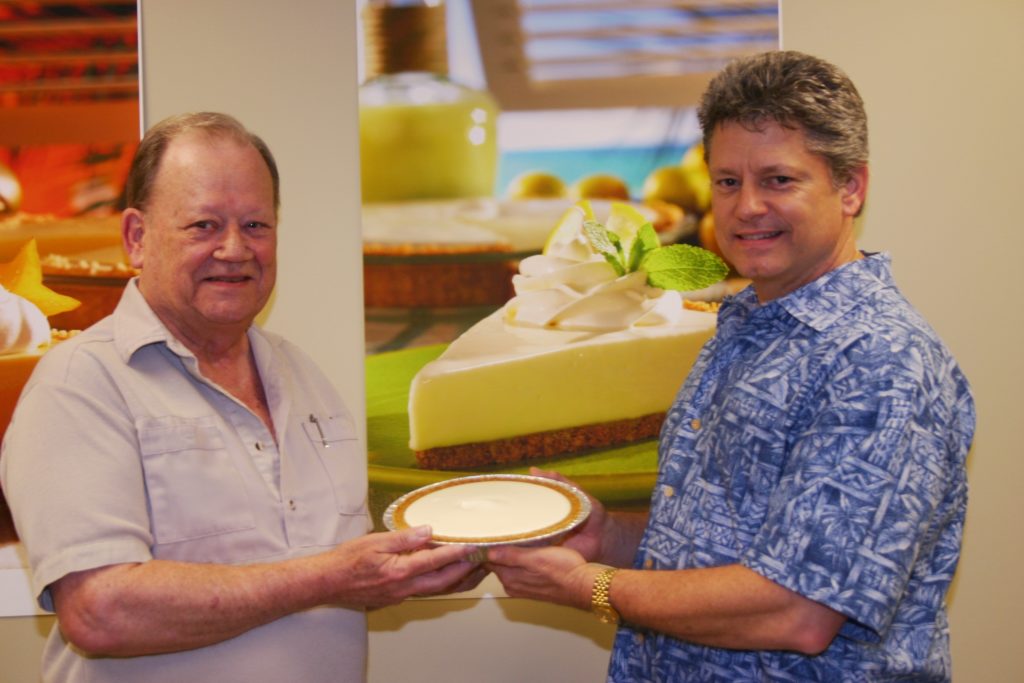
Five millionth pie presented to Kenny’s father, Ransom Burts, on his 75th birthday.
Today
Today the company is the strongest it has ever been. In addition to the flagship products of key lime (which includes 9-inch pies, 10-inch pies, mini pies, and key lime filling) they now offer another five types of pies and a cake product. As an advisor to the company, I have tasted them all and they live up to the company catch phrase “A Slice of Paradise.” Kenny’s Great Pies continue to get recognized for excellence. State and city proclamations, as well as industry awards, bolster the pride the employees feel. Everybody loves to tell the story of Kenny Burts, but no one loves to tell his story more than Kenny himself.
Are there still challenges? Absolutely!
The day-to-day issues of employees, suppliers, finding new customers, discovering and creating new products drive this entrepreneur to excel. Through the adversity of illness and economic downturn Kenny had one abiding mission, to keep the company successful. His attention to detail was important. That was applied to both the product and the employees. Kenny is careful in selecting employees and, in doing so, his employees have made it possible to weather the storms.
Kenny has taught me several lessons that I think we can all learn from. These include:
- Believe in your product
- Believe in your employees (not always easy to do)
- Be caring and concerned about your employees and show it! Kenny has helped many employees through tough times.
- Believe in yourself. This is necessary to not only have the company survive but to survive life.
Kenny is rightfully proud of what he and his team have done. I am proud to call him friend and client.
If you are interested in learning more, visit Kenny’s Great Pies website.
This article first appeared in the July 2017 STRIVE Magazine.
About the Author
With over 30 years of experience in dealing with the challenges of HR, Michael is co-founder of Omega HR Solutions. He speaks, writes and teaches on a number of HR issues, including laws and regulations. He also writes about “futurist” topics in order to prepare HR professionals for the next 5 to 10 years.

